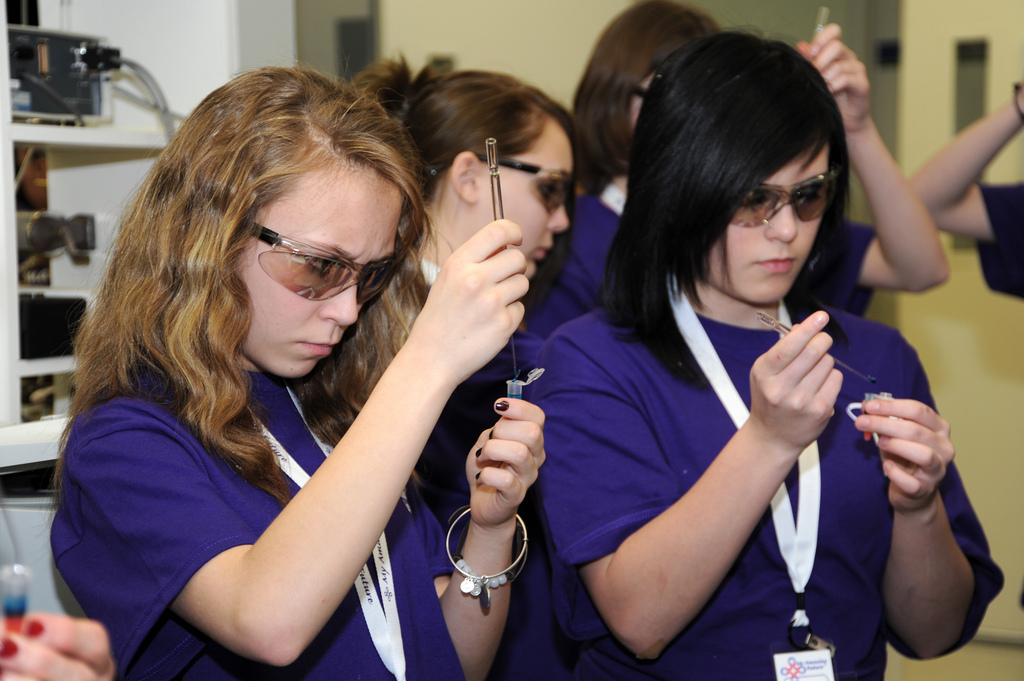The results of the most recent Programme for International Student Assessment (PISA) was just published and it spelled great news for Singapore. The tiny port state managed to secure the top spot with regards to educational performance on scientific fields. However, the survey also revealed that most western countries are failing in educating students in science despite the huge budgets that many of their institutions are funneling into their programs.
The survey involved looking into the performance of over 72 countries around the world, RT reports, testing students around the age of 15 years old on both math and science. Over 540,000 students took the test from all participating countries. It showed that although Singapore was more focused on preparing its students to enter the manufacturing sector in the past, its performance in STEM subjects has improved since the last survey.
The survey also credits the ability of the teachers in the city-state to teach the students, labeling them as “pillars of Singapore’s education system.” Even the culture in Singapore was praised by those behind the survey, saying that the trait of dedication and collaborative learning are what led to their excellent performance.
In contrast, the survey also noted how only a handful of countries showed improved performance in science education since 2006, Phys.org reports. This result becomes even more shocking as generally speaking, spending has increased by up to 20 percent among the countries surveyed.
Backing the survey is the Organization for Economic Co-operation and Development, with Angel Gurria being the Secretary-General. According to her, despite all of the scientific achievements over the years, education has not been able to keep up.
"A decade of scientific breakthroughs has failed to translate into breakthroughs in science performance in schools," Gurria said.
The organization’s director for education and skills, Andreas Schleicher also noted that involvement and refinement are necessary. Right now, most students believe that learning science is irrelevant to their lives.
"It's not about science tests, it's about engaging students and making science learning relevant... that's what translates to better outcomes and better careers," Schleicher said.



 NASA Astronauts Wilmore and Williams Recover After Boeing Starliner Delay
NASA Astronauts Wilmore and Williams Recover After Boeing Starliner Delay  Is space worth the cost? Accounting experts say its value can’t be found in spreadsheets
Is space worth the cost? Accounting experts say its value can’t be found in spreadsheets  NASA Partners with Katalyst to Save Swift Observatory with Innovative Docking Mission
NASA Partners with Katalyst to Save Swift Observatory with Innovative Docking Mission  Neuren Pharmaceuticals Surges on U.S. Patent Win for Rare Disorder Drug
Neuren Pharmaceuticals Surges on U.S. Patent Win for Rare Disorder Drug  Blue Origin’s New Glenn Achieves Breakthrough Success With First NASA Mission
Blue Origin’s New Glenn Achieves Breakthrough Success With First NASA Mission  Tabletop particle accelerator could transform medicine and materials science
Tabletop particle accelerator could transform medicine and materials science  SpaceX’s Starship Completes 11th Test Flight, Paving Way for Moon and Mars Missions
SpaceX’s Starship Completes 11th Test Flight, Paving Way for Moon and Mars Missions  Eli Lilly’s Inluriyo Gains FDA Approval for Advanced Breast Cancer Treatment
Eli Lilly’s Inluriyo Gains FDA Approval for Advanced Breast Cancer Treatment  Cogent Biosciences Soars 120% on Breakthrough Phase 3 Results for Bezuclastinib in GIST Treatment
Cogent Biosciences Soars 120% on Breakthrough Phase 3 Results for Bezuclastinib in GIST Treatment  Neuralink Expands Brain Implant Trials with 12 Global Patients
Neuralink Expands Brain Implant Trials with 12 Global Patients  Lost in space: MethaneSat failed just as NZ was to take over mission control – here’s what we need to know now
Lost in space: MethaneSat failed just as NZ was to take over mission control – here’s what we need to know now  Trump Administration to Launch Autism Initiatives Targeting Acetaminophen Use and New Treatment Options
Trump Administration to Launch Autism Initiatives Targeting Acetaminophen Use and New Treatment Options  SpaceX Starship Test Flight Reaches New Heights but Ends in Setback
SpaceX Starship Test Flight Reaches New Heights but Ends in Setback  Astronomers have discovered another puzzling interstellar object − this third one is big, bright and fast
Astronomers have discovered another puzzling interstellar object − this third one is big, bright and fast 































